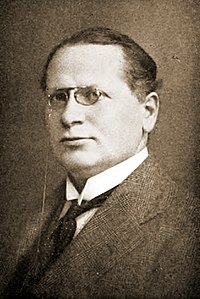
Back Litvinovův pakt Czech Litwinow-Protokoll German Litvinovi pakt Estonian پروتکل لیتوینوف Persian Litvinovin pöytäkirja Finnish Protocollo Litvinov Italian Protokół Litwinowa Polish Протокол Литвинова Russian Litvinovov pakt Slovak

The Litvinov Protocol is the common name of an international peace treaty concluded in Moscow on February 9, 1929. Named after the chief Soviet diplomat moving the negotiations forward, Maxim Litvinov, the treaty provided for immediate implementation of the Kellogg-Briand Pact by its signatories, thereby formally renouncing war as a part of national foreign policy.
The formal name of the Litvinov Protocol as registered with the League of Nations was the "Protocol for the Immediate Entry into Force of the Treaty of Paris of August 27, 1928, Regarding Renunciation of War as an Instrument of National Policy." The treaty is also sometimes known as the "Moscow Protocol."
Initial signatories of the Litvinov Protocol included the Union of Soviet Socialist Republics (Soviet Union), Poland, Latvia, Estonia, and Romania. Four other countries later formally adhered to the protocol: Lithuania, Finland, Turkey, and Persia.
© MMXXIII Rich X Search. We shall prevail. All rights reserved. Rich X Search